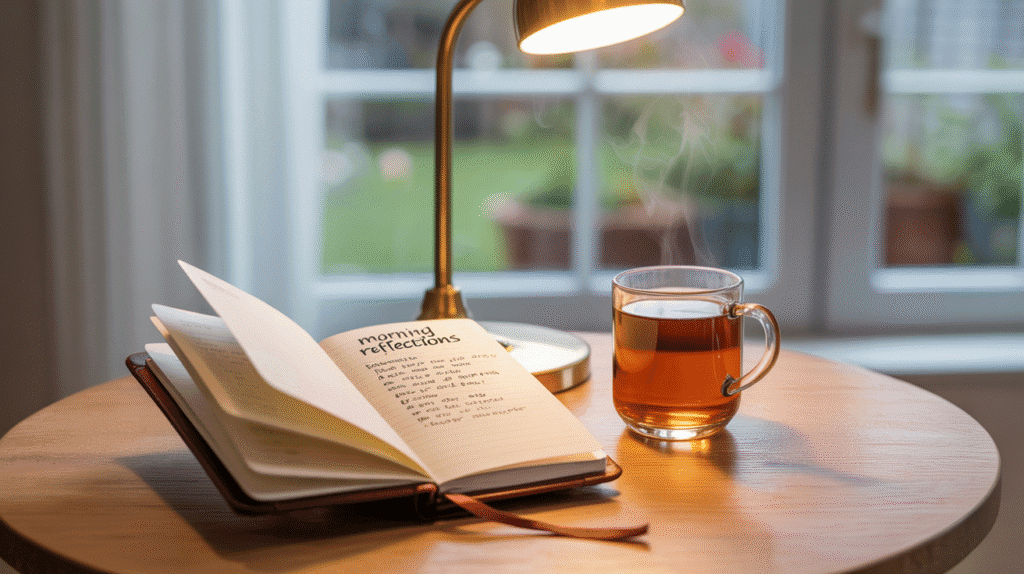
Waking up at 5AM sounds inspiring in theory—quiet mornings, a head start on the day, time for goals before the world wakes up. But if you’ve ever tried it, you know the reality often feels far from magical. Groggy eyes. Heavy limbs. A desperate urge to hit snooze and forget this ever seemed like a good idea.
I’ve been there. I tried forcing it. I downloaded the apps, set multiple alarms, even placed my phone across the room. But nothing stuck—until I stopped treating it like a punishment and started treating it like a habit worth building the right way.
The truth is, waking up early doesn’t have to feel awful. With the right mindset, timing, and structure, you can actually enjoy your mornings—and create a rhythm that supports your energy, not fights it.
In this article, I’ll share the exact strategy that helped me become a 5AM person—without burnout, resentment, or constant relapses.
Most failed 5AM attempts don’t start in the morning—they start the night before. Trying to wake up early without adjusting your evening routine is like expecting your phone to work all day without charging it.
The real problem isn’t the wake-up—it’s the wind-down.
Here’s what often goes wrong:
If your brain doesn’t get the signal that rest is coming, it won’t let go easily.
To fix this, start by creating a pre-sleep ritual that gently slows you down. This could include:
The more consistent your wind-down, the smoother your wake-up will be. If 5AM is the goal, your real success starts at 9 or 10PM.

One of the biggest reasons early wake-up habits fail is because people try to shift their schedule too drastically, too fast. Going from waking at 7:30 to 5:00AM overnight shocks your system—and your body will resist it.
That’s where the 15-minute rule comes in. Instead of making a huge jump, you gradually train your body and mind by moving your wake-up time back in small, manageable increments.
Here’s a sample timeline:
| Week | Wake-Up Goal |
|---|---|
| Week 1 | 7:15 AM |
| Week 2 | 7:00 AM |
| Week 3 | 6:45 AM |
| Week 4 | 6:30 AM |
| Week 5 | 6:15 AM |
| Week 6 | 6:00 AM |
| Week 7 | 5:45 AM |
| Week 8 | 5:30 AM |
| Week 9 | 5:15 AM |
| Week 10 | 5:00 AM |
This approach does two things:
Sustainable change is rarely fast—but it’s far more likely to last.
If your only reason for waking up early is because “successful people do it,” it won’t last. Willpower fades fast at 5AM. What keeps you getting out of bed is purpose, not pressure.
Ask yourself: Why do I want this time? What’s waiting for me at 5AM that I don’t get at 7?
The answer needs to be personal and meaningful. Here are some examples:
Whatever it is, visualize it the night before. Picture yourself doing it. Make it something you look forward to, not just something to check off.
Pro tip: prepare that first activity in advance. If it’s reading, set the book where you’ll see it. If it’s movement, roll out the mat. The less friction between waking and doing, the more likely you’ll follow through.
Early mornings feel better when they’re anchored in desire—not discipline alone.

Waking up early is hard enough—don’t make it harder with unnecessary obstacles. The more decisions and discomfort you face first thing in the morning, the more likely you are to crawl back into bed.
That’s why one of the most powerful ways to support your early routine is to design a “friction-free” morning.
Start with your environment. Set up your space the night before so it invites motion, not hesitation. Lay out clothes, prep a glass of water, and leave your journal or headphones where they’re easy to grab. When everything is ready, you don’t waste mental energy on tiny decisions.
Lighting matters, too. A dark room tells your brain to stay sleepy. Consider letting in natural light as early as possible—or using a sunrise alarm to simulate dawn. It signals your body that it’s time to wake gently, not jarringly.
And most importantly: choose a first activity that feels good. Don’t launch straight into emails or workouts if you’re dreading them. Start with something enjoyable, like reading, stretching, or sipping tea. This positive entry point builds momentum and rewires your association with early mornings.
The less friction your morning has, the more likely your habit is to stick.
Waking up at 5AM isn’t about proving your discipline—it’s about creating space for what matters before the noise of the world begins. But if that habit is built on pressure, exhaustion, or unrealistic expectations, it won’t last—and it won’t feel good.
The secret isn’t in a magic alarm clock or willpower alone. It’s in the gentle adjustments: sleeping earlier, waking up gradually, removing friction, and connecting your early hours to something that feeds your soul.
You don’t need to be a “morning person” to rise early. You just need a strategy that respects your energy, your rhythms, and your reasons.
Build it slowly. Make it meaningful. Let it evolve. That’s how I became someone who wakes up at 5AM—and actually enjoys it.